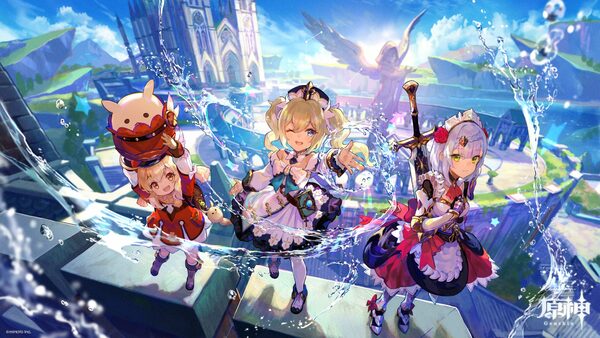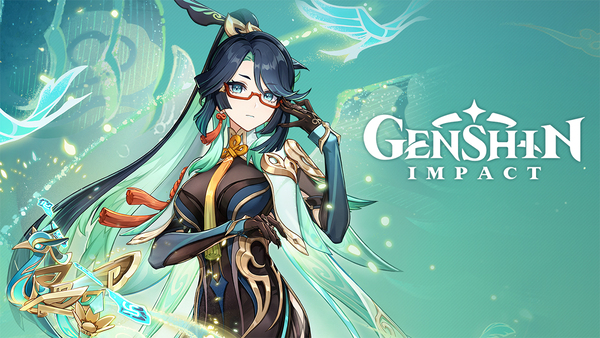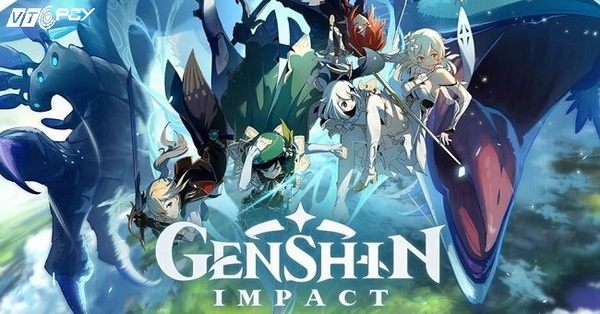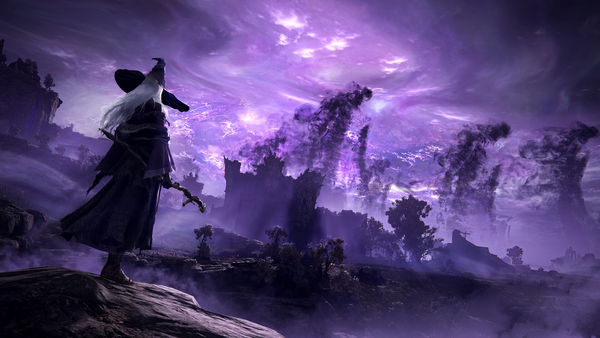Advertisement
Popular Now
Introduction
"Genshin Impact" is one of the most successful mobile and cross-platform games of recent years, known for its stunning open world, compelling narrative, and vast character roster. However, its rise to fame also brings into focus an increasingly controversial aspect of modern gaming: monetization through gacha mechanics. This article delves deeply into the issue of monetization in "Genshin Impact," analyzing the ethical, psychological, and economic impact of its gacha system on players.



Conclusion "Genshin Impact" has set new standards for mobile and cross-platform games with its beautiful world and intricate storytelling. However, its gacha system raises important ethical and psychological questions that resonate throughout the gaming industry. The balance between fair monetization and exploiting players through gacha mechanics remains a contentious issue. As players and developers continue to navigate this space, it's vital to recognize the impact of these systems on both individual gamers and the broader gaming community.

1. The Appeal of Gacha: A Thrilling Gamble
H3: The Mechanics of Gacha in "Genshin Impact" The core of the gacha system in "Genshin Impact" revolves around players "wishing" on banners for new characters or weapons. Each "wish" is akin to a lottery ticket, with the odds of pulling high-tier characters and weapons being deliberately low. This system entices players to spend money in hopes of obtaining rare, powerful characters. H4: RNG and the Allure of Rarity The use of Random Number Generation (RNG) increases the appeal by adding an element of surprise and excitement. Players never know when they will get the desired character, which leads to more engagement but also risks creating addictive patterns.2. Predatory Monetization or Fair Game Design?
H3: Why Gacha Can Be Viewed as Predatory Critics argue that gacha systems, particularly those in "Genshin Impact," are predatory due to their use of psychological triggers like fear of missing out (FOMO) and limited-time banners. These features manipulate human behavior, encouraging more spending. H4: The Illusion of Choice While "Genshin Impact" offers a free-to-play experience, the power imbalance between free players and those who spend real money creates an illusion of choice. Free players are technically able to access the same content, but at a much slower pace, leading many to feel pressured into spending.3. The Psychology Behind Gacha Systems
H3: Variable Reward Schedules At the heart of gacha mechanics lies the principle of variable rewards, a psychological phenomenon where unpredictable, infrequent rewards keep players hooked. In "Genshin Impact," the chance of unlocking a 5-star character is extremely low, yet the possibility keeps players coming back. H4: Dopamine and Game Design When players get a desired character, their brain releases dopamine, a neurotransmitter associated with pleasure and reward. The anticipation and eventual satisfaction create a cycle of repeated behavior, which can be compared to gambling addiction.4. The Impact on Spending: A Financial Deep Dive
H3: Whale Culture in Gacha Games In the gaming world, "whales" are players who spend thousands of dollars to obtain every new character or weapon. "Genshin Impact" is no stranger to this phenomenon, with some players reportedly spending over $10,000. H4: Microtransactions and Their Macro Impact While most players spend only a small amount, the cumulative effect of microtransactions is staggering. This creates a lucrative revenue model for game developers but at a potential cost to the player's financial well-being.5. Free-to-Play or Pay-to-Win? The Balance of Power
H3: Is "Genshin Impact" Truly Free-to-Play? One of the key marketing points of "Genshin Impact" is that it is free-to-play. However, this claim is under scrutiny, as the gacha system creates a significant barrier for players who do not spend money. H4: Power Disparity Between Paying and Non-Paying Players The game’s meta can become dominated by paying players, making it difficult for free players to compete or enjoy the game at higher levels. This pay-to-win dynamic undermines the sense of fairness in competitive gameplay.
6. Ethical Considerations in Game Monetization
H3: Should Gacha Systems Be Regulated? As gacha systems become more common, discussions about regulation have intensified. Some countries, such as Belgium and the Netherlands, have already taken steps to ban loot boxes, which function similarly to gacha systems. H4: The Role of Game Developers Game developers face ethical questions about the use of gacha mechanics. Should they prioritize profit over player well-being? The tension between creating a sustainable business model and protecting players from potential exploitation is central to this debate.7. Player Reactions: Love, Hate, and Everything In Between
H3: The Divide in the Genshin Community The "Genshin Impact" community is divided when it comes to the gacha system. Some players embrace it, treating the game as a hobby where spending is justified, while others resent the pressure to spend money to keep up with content. H4: How the Community Has Adapted Many players have adopted strategies to mitigate spending, such as saving in-game currency for specific banners or participating in social media-driven wish strategies. Still, frustration is prevalent among those who cannot afford to spend.8. The Global Influence of Gacha: A Trend Beyond "Genshin Impact"
H3: Gacha as a Growing Trend in Gaming "Genshin Impact" has popularized gacha mechanics in the global market, but the system is not new. Originating in Japan, gacha has been a staple of mobile games for years. Its success in "Genshin Impact" is now influencing other major game developers. H4: The Risks of Mainstream Adoption As more developers adopt gacha mechanics, the potential for exploitation grows. The increasing prevalence of this model could shift the entire gaming industry towards microtransactions as the dominant revenue model, raising further ethical concerns.9. Potential Solutions: How Developers Can Change
H3: Increasing Transparency One proposed solution is for developers to increase transparency regarding the odds of obtaining rare items. While "Genshin Impact" does provide this information, it’s often buried in terms and conditions, making it inaccessible for most players. H4: The Future of Monetization Models Developers could also explore alternative monetization models, such as battle passes or cosmetic-only microtransactions, that allow them to generate revenue without relying on gacha. These models could reduce the psychological manipulation inherent in gacha systems.10. A Player's Responsibility: Staying Mindful in Gacha Games
H3: Understanding Spending Habits For players, understanding their spending habits is crucial when engaging with gacha games like "Genshin Impact." Setting personal limits and avoiding the temptation to overspend can help mitigate the risks associated with gacha mechanics. H4: The Importance of Self-Control Recognizing the addictive nature of these games is the first step toward maintaining healthy gaming habits. Players can benefit from treating gacha pulls as a form of entertainment rather than a necessity for progression.
Conclusion "Genshin Impact" has set new standards for mobile and cross-platform games with its beautiful world and intricate storytelling. However, its gacha system raises important ethical and psychological questions that resonate throughout the gaming industry. The balance between fair monetization and exploiting players through gacha mechanics remains a contentious issue. As players and developers continue to navigate this space, it's vital to recognize the impact of these systems on both individual gamers and the broader gaming community.


















